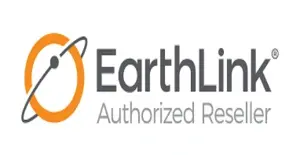Top Internet Providers in Hamilton, Virginia
Xfinity from Comcast
Earthlink
HughesNet
Verizon
Finding the right internet provider in Hamilton, Virginia can be a crucial decision for your home or business. With various options available, understanding the different types of internet connections, speeds, prices, and customer satisfaction ratings is essential. This guide will provide a comprehensive overview of the internet providers in Hamilton, VA, and help you make an informed choice that meets your specific needs.
Understanding Internet Options in Hamilton, VA
Hamilton, Virginia, like many areas, offers several types of internet connections, each with its own advantages and disadvantages. The most common types include:
- DSL (Digital Subscriber Line): Uses existing telephone lines to provide internet service. It's generally more affordable but offers slower speeds compared to other options.
- Cable: Uses coaxial cables, the same infrastructure used for cable television. Cable internet typically provides faster speeds than DSL.
- Fiber Optic: Uses fiber-optic cables to transmit data as light signals. Fiber offers the fastest speeds and the most reliable connection, but it may not be available in all areas.
- Satellite: Provides internet access via satellite. This is a good option for rural areas where other types of internet are not available, but it can be more expensive and have higher latency.
- Fixed Wireless: Uses radio waves to transmit data between a provider's base station and a receiver on your property. Suitable for rural or underserved areas, offering an alternative to satellite with potentially lower latency.
Factors to Consider When Choosing an Internet Provider
Before choosing an internet provider, consider the following factors:
- Speed: Determine the speed you need based on your internet usage. If you stream videos, play online games, or work from home, you'll need a faster connection.
- Price: Compare the prices of different plans and providers. Look for any hidden fees or promotional offers.
- Availability: Check which providers offer service in your area. Not all types of internet connections are available everywhere.
- Reliability: Read reviews and check customer satisfaction ratings to get an idea of the provider's reliability.
- Data Caps: Be aware of any data caps imposed by the provider. If you exceed the data cap, you may be charged extra or have your service slowed down.
- Customer Service: Consider the quality of customer service offered by the provider. A reliable customer support team can be invaluable if you encounter any issues.
Major Internet Providers in Hamilton, Virginia
Several internet providers serve Hamilton, Virginia. Here's an overview of some of the major players:
Xfinity
Xfinity is a major cable internet provider that offers a wide range of plans with varying speeds and prices. They are generally available in many parts of Hamilton and offer bundles that include internet, TV, and phone services.
Verizon Fios
Verizon Fios is a fiber optic internet provider known for its fast speeds and reliable service. However, Fios availability is not as widespread as cable internet. Check if Verizon Fios is available in your specific Hamilton location.
Other Providers
Depending on your location within Hamilton, you may also have access to other providers, such as:
- HughesNet: A satellite internet provider, ideal for rural areas with limited options.
- Viasat: Another satellite internet provider with varying plans and speeds.
- Local Providers: Some smaller, local providers may offer DSL or fixed wireless internet in specific areas.
Choosing the Right Internet Plan
Selecting the right internet plan depends on your individual needs and budget. Here are some general guidelines:
- Light Users (Browsing, Email): A basic DSL or low-tier cable plan may be sufficient.
- Moderate Users (Streaming, Social Media): A mid-tier cable or a basic fiber plan is recommended.
- Heavy Users (Gaming, Multiple Devices): A high-speed fiber or high-tier cable plan is essential.
Comparing Plans
Always compare the following aspects of each plan:
- Download Speed: The speed at which you can download data from the internet.
- Upload Speed: The speed at which you can upload data to the internet.
- Data Cap: The amount of data you can use each month.
- Contract Length: The duration of the contract.
- Installation Fees: Any upfront costs associated with setting up the service.
- Monthly Price: The ongoing cost of the service.
Understanding Internet Technology: A Deeper Dive
To make a fully informed decision, it's helpful to understand the technologies behind each internet connection type. Here’s a more detailed look:
DSL (Digital Subscriber Line)
DSL technology leverages existing telephone lines, transforming them into conduits for both voice and data. The key advantage is its widespread availability; almost every household already has a phone line, making DSL accessible in many areas. However, its performance diminishes significantly with distance from the provider's central office. As the signal travels further, speeds decrease, making it a less ideal choice for those requiring high bandwidth for activities like streaming or online gaming. Different DSL variants, such as ADSL and VDSL, offer varying speed ranges, with VDSL capable of providing faster connections over shorter distances.
Cable Internet
Cable internet utilizes the same coaxial cables that deliver cable television, offering a robust infrastructure for data transmission. This makes cable a prevalent choice, providing faster speeds than DSL in many regions. However, a shared bandwidth model is a significant aspect of cable internet. During peak hours, when many users in the same neighborhood are online simultaneously, the shared bandwidth can lead to congestion and slower speeds. Despite this, cable remains a popular option due to its relatively high speeds and widespread availability. Cable providers often offer bundled packages, combining internet, TV, and phone services for added convenience and potential cost savings.
Fiber Optic Internet
Fiber optic internet represents the pinnacle of internet technology, utilizing thin strands of glass or plastic to transmit data via light signals. This allows for incredibly fast speeds, often symmetrical (equal upload and download speeds), and low latency. Fiber is less susceptible to interference and degradation compared to cable or DSL, resulting in a more reliable and consistent connection. Fiber optic networks are rapidly expanding, but they are not yet available in all areas. Installation can be more complex and costly than cable or DSL, but the superior performance often justifies the investment for users who require high-speed, reliable internet.
Satellite Internet
Satellite internet provides a crucial lifeline for rural areas where wired internet options are limited or nonexistent. It relies on orbiting satellites to transmit data to and from a satellite dish installed on your property. While satellite internet offers broad coverage, it is generally more expensive than other types of internet, and it suffers from higher latency, which can impact real-time applications like online gaming and video conferencing. Weather conditions can also affect the reliability of satellite internet. For those without access to cable, fiber, or DSL, satellite remains a viable, though less ideal, option.
Fixed Wireless Internet
Fixed wireless internet is an alternative to satellite for areas with limited wired internet options. It uses radio waves to transmit data between a provider's base station and a receiver on your property. Fixed wireless typically offers lower latency than satellite and can provide competitive speeds. However, its performance can be affected by obstructions, such as trees or buildings, that block the signal. Availability depends on the provider's network coverage and the presence of a clear line of sight between your property and the base station. Fixed wireless is a growing option in many rural and underserved areas.
Tips for Improving Your Internet Speed and Performance
Even with the best internet plan, you might still experience performance issues. Here are some tips to optimize your internet connection:
- Upgrade Your Router: An outdated router can significantly impact your internet speed. Consider upgrading to a newer model with improved performance and features.
- Position Your Router Strategically: Place your router in a central location to ensure optimal coverage throughout your home. Avoid placing it near walls, metal objects, or electronic devices that can interfere with the signal.
- Secure Your Wi-Fi Network: Protect your Wi-Fi network with a strong password to prevent unauthorized access and bandwidth theft.
- Limit the Number of Connected Devices: Too many devices using the internet simultaneously can slow down your connection. Limit the number of devices that are actively using bandwidth-intensive applications.
- Run Regular Speed Tests: Periodically test your internet speed to ensure that you are getting the speeds you are paying for. If you consistently experience lower speeds than expected, contact your internet provider.
- Use a Wired Connection: For devices that require the most reliable and fastest connection, such as gaming consoles or streaming devices, consider using a wired Ethernet connection instead of Wi-Fi.
- Clear Browser Cache and Cookies: Over time, your browser can accumulate a large amount of cached data and cookies, which can slow down your browsing experience. Regularly clear your browser cache and cookies to improve performance.
- Update Your Device Drivers: Outdated device drivers can cause compatibility issues and performance problems. Make sure your device drivers are up-to-date.
- Contact Your Provider: If you have tried all of the above steps and are still experiencing internet problems, contact your internet provider for assistance. They may be able to identify and resolve any underlying issues with your service.
Conclusion
Choosing the right internet provider in Virginia, particularly in areas like Hamilton, requires careful consideration. This article has explored the diverse landscape of internet options available, highlighting the importance of understanding your specific needs and priorities. We've discussed key factors such as speed requirements, budget constraints, contract terms, and customer service reputation, emphasizing that a one-size-fits-all approach simply doesn't work. Furthermore, we've examined major providers like Xfinity and Verizon Fios, acknowledging their presence and potential offerings within the state. By understanding these elements, you're better equipped to navigate the complexities of internet service selection.
The key takeaway for Virginia residents seeking internet services is to conduct thorough research and compare available plans based on your individual usage patterns. Don't solely focus on advertised download speeds; consider upload speeds, data caps, and the reliability of the connection, especially if you rely on video conferencing, online gaming, or large file transfers. Actively check for customer reviews and ratings to gauge the provider's customer service performance. Furthermore, before committing to a long-term contract, inquire about potential introductory offers, hidden fees, and the process for cancellation or service changes. Leverage online comparison tools and provider websites to gather detailed information and compare different options side-by-side.
Ultimately, the choice of an internet provider rests on your individual circumstances. By carefully evaluating your needs, researching available providers, and comparing plan details, you can make an informed decision that aligns with your requirements and budget. As technology continues to evolve, and as competition among internet providers intensifies, we anticipate ongoing improvements in internet speeds, coverage, and pricing throughout Virginia. The future of internet access in the state looks promising, with the potential for even greater connectivity and affordability for all residents in the years to come.
Compare Internet Providers in Hamilton VA
Moving to the Hamilton area?
Let us help you transfer your current Internet service or pick a new plan.
Find More Internet Providers by Locations Near You
- Internet Providers in New York
- Internet Providers in Los Angeles
- Internet Providers in Chicago
- Internet Providers in Houston
- Internet Providers in Philadelphia
- Internet Providers in San Antonio
- Internet Providers in San Diego
- Internet Providers in Dallas
- Internet Providers in Phoenix
- Internet Providers in Minneapolis
- Internet Providers in Austin
- Internet Providers in San Jose
- Internet Providers in Fort Worth
- Internet Providers in Jacksonville
- Internet Providers in Columbus
- Internet Providers in Charlotte
- Internet Providers in Indianapolis
- Internet Providers in San Francisco
- Internet Providers in Seattle
- Internet Providers in Denver
- Internet Providers in Detroit
- Internet Providers in Boston
- Internet Providers in El Paso
- Internet Providers in Nashville
- Internet Providers in Cleveland
- Internet Providers in Portland
- Internet Providers in Las Vegas
- Internet Providers in Louisville
- Internet Providers in Milwaukee
- Internet Providers in Baltimore
- Internet Providers in Albuquerque
- Internet Providers in Fresno
- Internet Providers in Sacramento
- Internet Providers in Atlanta
- Internet Providers in Saint Paul
- Internet Providers in Kansas City
- Internet Providers in Tucson
- Internet Providers in Raleigh
- Internet Providers in Omaha
- Internet Providers in Miami
- Internet Providers in Long Beach
- Internet Providers in Oakland
- Internet Providers in Tampa
- Internet Providers in Wichita
Top Internet Providers in Hamilton in Your Area
Find Best Internet Provider in Your area?
Enter your zip so we can find the best providers in your area:



